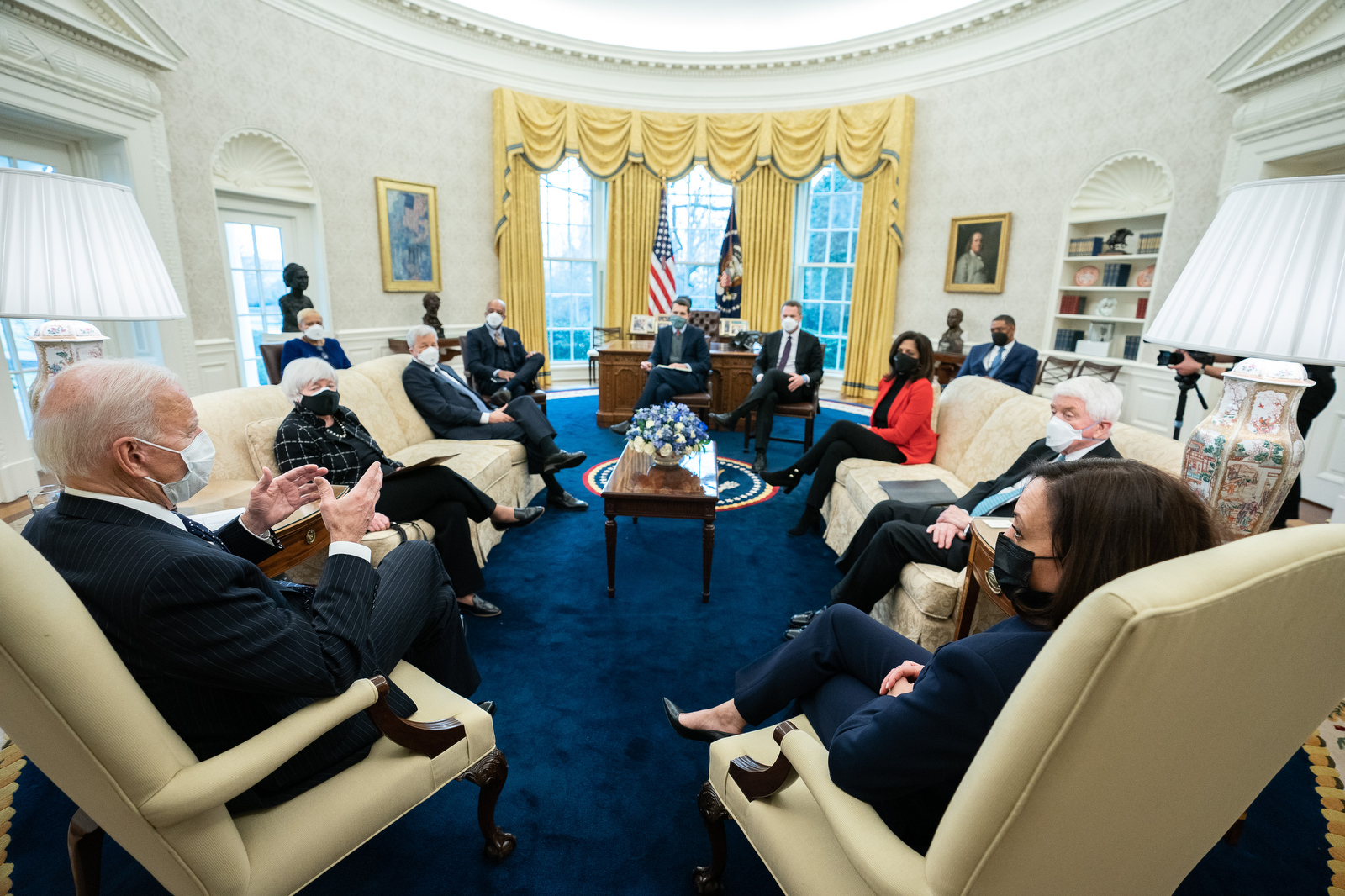
For Business Roundtable Members, Corporate Responsibility Doesn’t Always Include Paying Taxes
When 181 CEOs of the biggest companies in America put their collective weight behind a press statement, the sheer force of the PR can generate some pretty friendly headlines across the media.
The Business Roundtable is a lobbying group representing the heads of large companies often in the news for their views on corporate social responsibility, including Amazon, Apple, hedge fund giant BlackRock, JPMorgan Chase, ExxonMobil, and Walmart. In mid-2019, the Business Roundtable put out a grand Statement on the Purpose of a Corporation that committed the signers to no longer principally serve their shareholders, but rather aims above all for “inclusive prosperity” that protects the environment while building a sustainable economy.
The statement prompted feature news stories with dramatic photo montages of the determined corporate leaders in The New York Times, The Wall Street Journal, and Fortune, as well as NPR’s All Things Considered and elsewhere. As one might expect, the statement was found by independent researchers to be far more of a PR play than a binding new set of governance rules, which would have required boards of directors to sign off on the overhaul.
Behind the scenes, the Business Roundtable was lobbying the Trump administration in favor of limiting shareholder proposals that would have followed-through on its pledges to respect the environment and sending representatives to ALEC meetings. The trade association’s lobbying is massive—at nearly $17 million spent last year, according to the Center for Responsive Politics, the Business Roundtable is the ninth-largest spender on bending the ear of the federal government, just behind Amazon. Some observers deemed the pledge just more corporate greenwashing.
Last night, the Business Roundtable came out against a proposal floated by U.S. Treasury Secretary Janet Yellen for a global minimum tax on multinational corporations, one that would combat tax revenue lost to offshore havens. A global floor would crack down significantly on the dozens of large corporations that paid no federal income taxes in 2020 thanks to tax avoidance schemes. At least 11 Business Roundtable members paid an effective tax rate below zero in 2020, as did 28 Business Roundtable members in 2018, the first year the 2017 Republican-passed Tax Cut and Jobs Act was in effect.
Eight members of the Business Roundtable had an effective federal tax rate of zero or less for the past three years, according to reports from the nonprofit Institute on Taxation and Economic Policy (ITEP): Duke Energy, FedEx, American Electric Power, Nike, Salesforce, Williams, Archer Daniels Midland, and Ball Corporation. Business Roundtable members included in ITEP’s 2018 roundup of large profitable federal tax avoiders are below:
President Biden’s new infrastructure plan would raise taxes on large corporations, stepping up rates from 21% to 28%, short of the 35% rate in place before the 2017 Republican tax cuts were passed. The Business Roundtable last week issued a statement saying it opposed Biden’s corporate tax hike, calling for some other revenue source to finance the $1-$1.5 trillion in infrastructure spending the group says is needed in “long overdue investments.”
In its statement against Yellen’s global minimum tax proposal, the Business Roundtable said, “U.S. companies already face a global minimum tax on their income, known as GILTI.” The global intangible low-taxed income (GILTI) tax, as created in the Tax Cut and Jobs Act, is triggered when a multinational’s global foreign tax burden is very low, and applies an effective rate of 10.5% percent on some offshore earnings.
Immediately after Trump signed the bill, corporations began seeking out loopholes in the base erosion and anti-abuse tax (BEAT) and GILTI, the New York Times reported: “Chip Harter was the Treasury official in charge of writing the rules for the BEAT and GILTI. He had spent decades at PricewaterhouseCoopers and the law firm Baker McKenzie, counseling companies on the same sorts of tax-avoidance arrangements that the new law was supposed to discourage.”
Economist Kimberly Clausing wrote last year on the inadequacies of GILTI in reducing offshoring of profits by hugely-profitable U.S. corporations, noting that the law exempts the first 10% return on physical assets located abroad. The law also encourages keeping income in foreign countries that have higher tax rates, like Germany, that offer desirable tax credits, according to Clausing. If a company has income in tax havens where corporations pay little tax and is subject to the GILTI, Clausing writes, foreign income is preferable to U.S. income as long as the foreign rate is less than 52.5 percent.
Negotiating an international tax floor will be complex, so while Yellen raises the issue for greater global agreement, Congress could address the revenue lost to corporate offshoring by reintroducing and passing the No Tax Breaks for Outsourcing Act, a bill supported by Americans for Tax Fairness and 90 groups, which would enforce at least the U.S. statutory tax rate on corporate income in every country where they operate.
For more investigations into corporate lobbying, get the Sludge newsletter.
